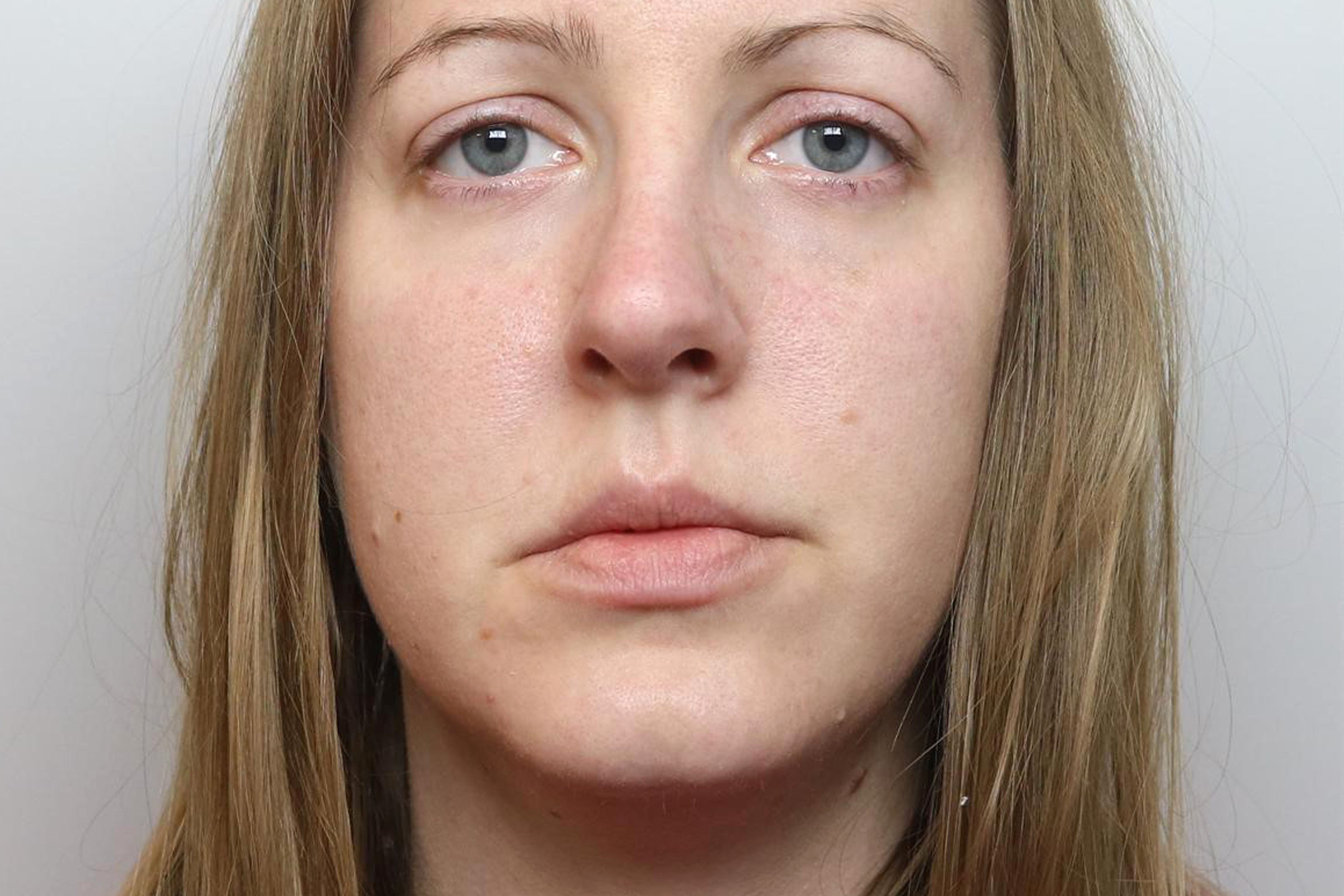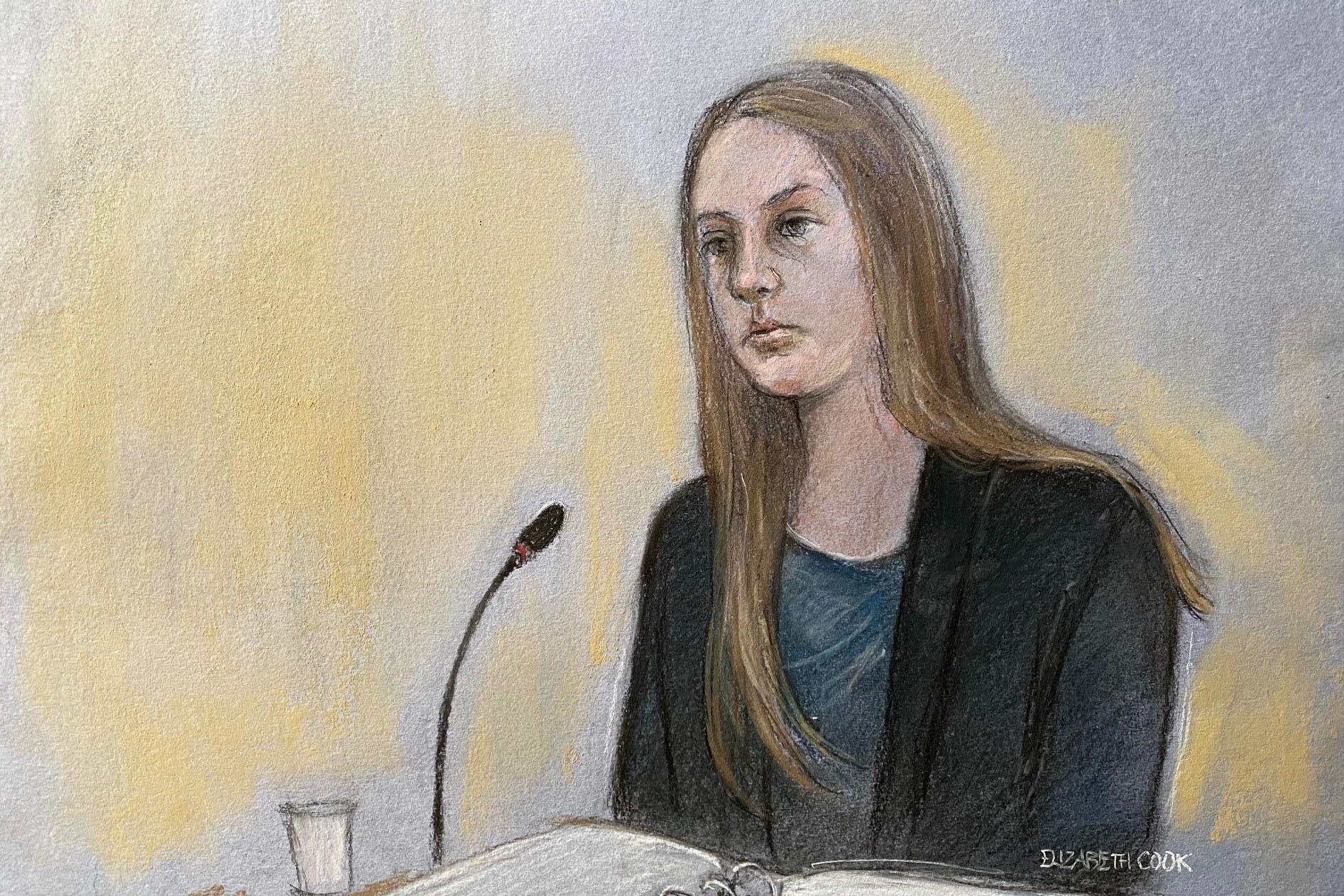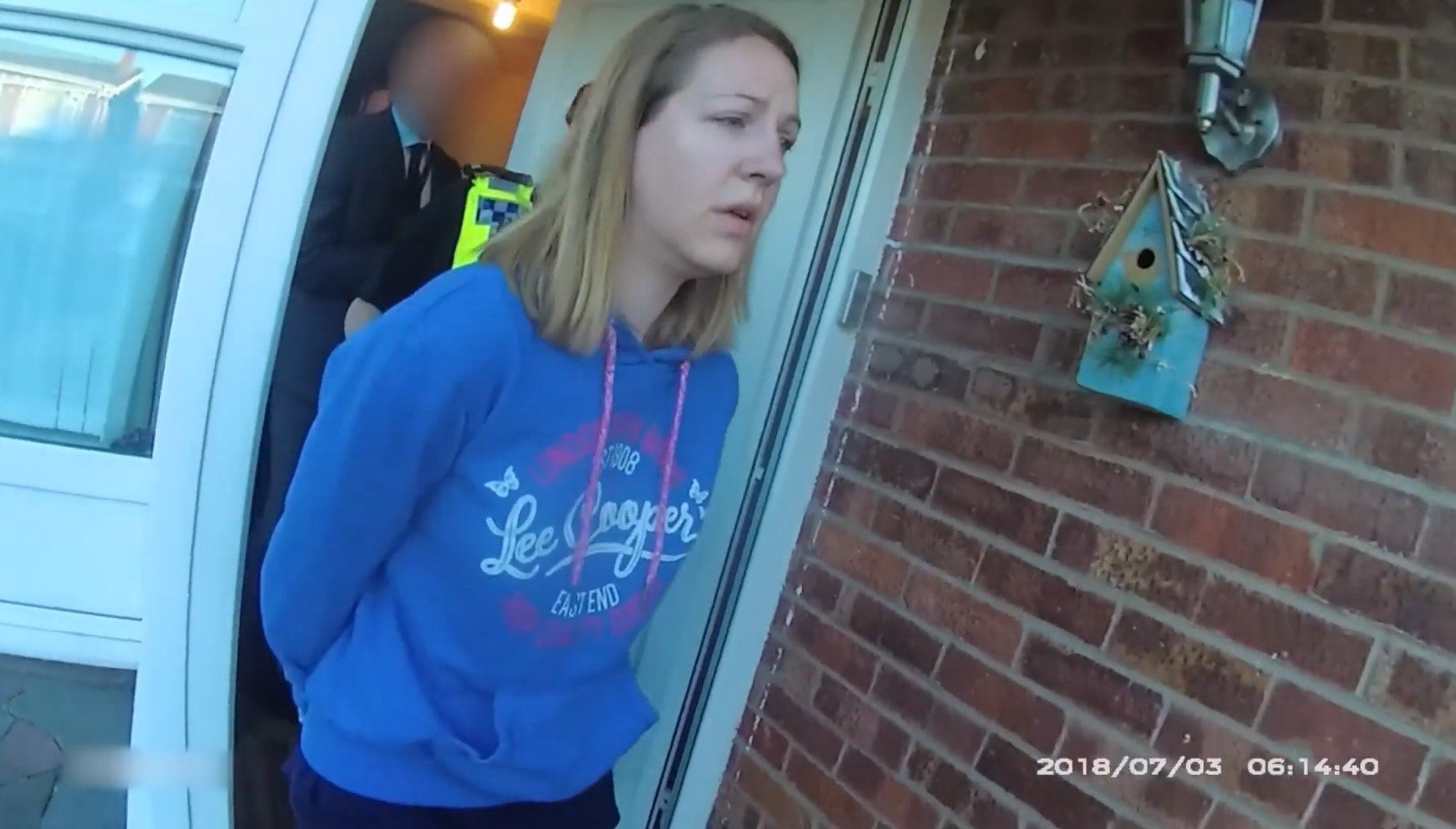Lucy Letby: Britain’s most prolific child killer remains remorseless
The former nurse will spend the rest of her life in prison without parole after she was handed her fifteenth whole life order
Remorseless to the end, Britain’s most prolific child killer defiantly told a judge “I’m innocent” as she was led to the cells once again.
Lucy Letby had been just handed a rare whole-life order for trying to murder a fragile baby girl less than two hours after she was born.
The punishment makes little difference to the former neonatal nurse’s future, having already been sentenced to 14 further whole life terms for killing seven other babies in her care and trying to murder six more – including two attempts on one.
But to the family of Child K, who trusted Letby to care for their precious firstborn child, the moment represents the culmination of an eight-year battle for justice after not one, but two criminal trials to make their daughter’s voice heard.

Although Child K, whose identity is protected by a court order, miraculously survived Letby’s brazen attempt to tamper with her breathing tube in the early hours of 17 February 2016, she died three days later.
Born at 25 weeks’ gestation and weighing just 692g, she was said by the prosecution to be the “epitome of fragility” when she was delivered at the Countess of Chester Hospital where Letby worked.
Consultant paediatrician Dr Ravi Jayaram said he caught the nurse “virtually red handed” as he entered the unit’s intensive care room at about 3.45am before he intervened and managed to resuscitate the newborn.
The infant was transferred to a specialist hospital later that day. Her subsequent death was recorded as due to her extreme prematurity and severe respiratory distress syndrome.
In a tearful victim personal statement, the baby girl’s mother said she will never have “peace”, “closure” or experience the feeling of being a complete family unit.
“However, you, Lucy Letby, will never hurt another child or have the privilege and joy that children give,” she bravely told her child’s attacker from the witness box at Manchester Crown Court.

Addressing Letby was an opportunity that was denied to other victim’s families after she refused to leave her cell to be sentenced following her first trial last year.
That trial saw her found guilty of the murders of seven babies and the attempted murders of six others at the hospital’s neonatal unit between June 2015 and June 2016.
Medical experts for the prosecution said she had injected some of them with air, while others were said to have been administered doses of insulin. The common thread, when hospital chiefs tried to analyse a spike in deaths at the unit, was the presence of Letby.
A retrial was ordered for charges relating to Child K after the first jury could not reach a verdict.
It is not yet known whether this will be the end of Letby’s court appearances. Cheshire Constabulary is still investigating Letby’s career and reviewing all her contact with patients.
A separate corporate manslaughter investigation at the hospital by Cheshire Constabulary also remains ongoing.
A public inquiry, which starts in September, will examine the wider fallout, interrogating hospital managers about the way they handled doctors’ concerns.

It is a trial which has drawn international attention, sometimes accompanied by intense speculation as online sleuths analysed every detail of the case and questioned the scientific evidence presented at court.
At times online theories filled a vacuum of information left by reporting restrictions imposed after prosecutors announced they were bringing a retrial, as people questioned how a seemingly normal and well-liked nurse could have carried out such crimes.
To this day, the motive for her attacks remains frustratingly elusive.
“Only you know the reason or reasons for your murderous campaign,” judge Mr Justice Goss said as he awarded the nurse her fifteenth life order on Friday.
It was only last week, after a fresh jury took just three-and-half hours to find her guilty of attempting to murder Child K, that full details of Letby’s failed bid to appeal her other convictions were able to be revealed.
It can now be reported that her barrister, Benjamin Myers KC, tried to convince the Court of Appeal that the trial judge, Mr Justice Goss, was wrong to tell the jury they did not need to be sure of the precise act which caused Letby’s victims harm.
Mr Myers said that this was “not correct” as there may have been “other explanations”.
He said: “There may be more counts or all counts where the jury was unable to reach a state of certainty as to guilt.
“They should have been told they should have been sure of the act. They have to have certainty as to the act that lay behind the allegations of deliberate harm.”
Nick Johnson KC, for the prosecution, stated the argument was “not tenable” and that while medical evidence was “at the heart of pretty much all” of the prosecution’s argument, it formed “only part of the circumstances of the case” and that Letby “was always there when things happened”.
He said: “The law does not and has never required the prosecution to prove precise acts or acts were committed to cause death.”

Letby’s team also objected to how the judge dealt with a “jury irregularity” after a complaint was made to the court in August 2023.
At the appeal hearing in central London, it emerged that the complaint alleged that a juror had discussed the case with members of the public during the trial.
After hearing witness evidence, Mr Justice Goss ruled the juror should continue in their role.
Mr Myers said the verdicts were “imperilled” by this decision, adding: “If there was a member of the jury who was disregarding the directions of the trial judge, which we know is a serious matter, that juror should at the very least have played no further part in the activities of the jury from the moment that these activities came to light.
“It can’t be said that the verdicts that were returned would have been returned.”
However Dame Victoria Sharp and Lord Justice Holroyde dismissed Letby’s bid in May.
In a 59-page ruling, published on Tuesday after Letby’s latest conviction, Dame Victoria said the 34-year-old’s appeal complaints were “not arguable” and declined to formally accept proposed fresh evidence.
Bookmark popover
Removed from bookmarks